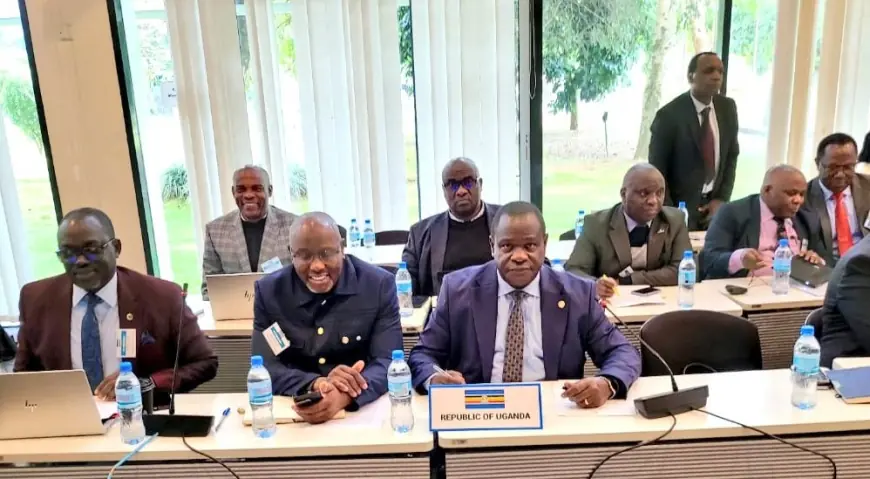DST Patrick Ocailap leads delegation to Arusha, discusses the removal of EAC’s discriminatory excise duties on export goods.

Uganda has asked other East African Community (EAC) partner states to consider the removal of discriminatory excise duty and other levies charged on certain export goods, which, according to Deputy Secretary to the Treasury (DST) Patrick Ocailap, are against the EAC customs protocol regulations.
The Deputy Secretary to the Treasury, who led Uganda's team to the meeting of East African Community (EAC) Permanent Secretaries, presented Uganda's position on discriminatory charges by Partner States imposed on goods from other Partner States.
It was highlighted that, specifically, Kenya imposes discriminatory excise duty on tiles and some agricultural products from Uganda.
Tanzania also imposed an industrial development levy in retaliation to Kenya's discriminatory charges.
"All Member States imposing Excise duties and levies, should immediately remove them on Partner States from East African Community because such acts go against the EAC Customs Union Protocol Articles 10 and 15," said Ocailap on behalf of Uganda’s government.
Uganda is advocating for a return to uniform implementation of the Customs Union framework to foster fair competition, investment, and regional economic growth.
“We must act to preserve the integrity of the Customs Union. Trade wars within the Community are not just against the law — they’re against the spirit of integration that brought us together.” Ocailap said
The latest standoff adds to a string of trade disputes that have emerged in recent years within the EAC. Uganda and Kenya have clashed over a range of products — from sugar and maize to milk and poultry — with frequent allegations of non-tariff barriers and arbitrary sanitary standards.
In 2021, Uganda’s exports to Kenya dropped from $560 million in 2019 to $465 million, reflecting growing trade restrictions.
Though trade rebounded to $750 million in 2024, largely due to increased bilateral talks, friction has persisted, particularly over manufactured goods such as cement, steel, and ceramics.
Tanzania has also complained of imbalanced treatment, leading to tit-for-tat tax policies that threaten the unity of the EAC’s Common Market and Customs Union — both central pillars of the regional integration agenda.
As of 2025, intra-EAC trade stands at $12.9 billion, up from $9.5 billion in 2020, according to the EAC Secretariat. However, non-tariff barriers, regulatory divergence, and domestic protectionism remain major impediments.
According to Article 39 of the EAC Customs Union Protocol, the customs law of the Community applies uniformly in the Customs Union, except where the Protocol itself provides otherwise.
What's Your Reaction?
 Like
0
Like
0
 Dislike
0
Dislike
0
 Love
0
Love
0
 Funny
0
Funny
0
 Angry
0
Angry
0
 Sad
0
Sad
0
 Wow
0
Wow
0
















































